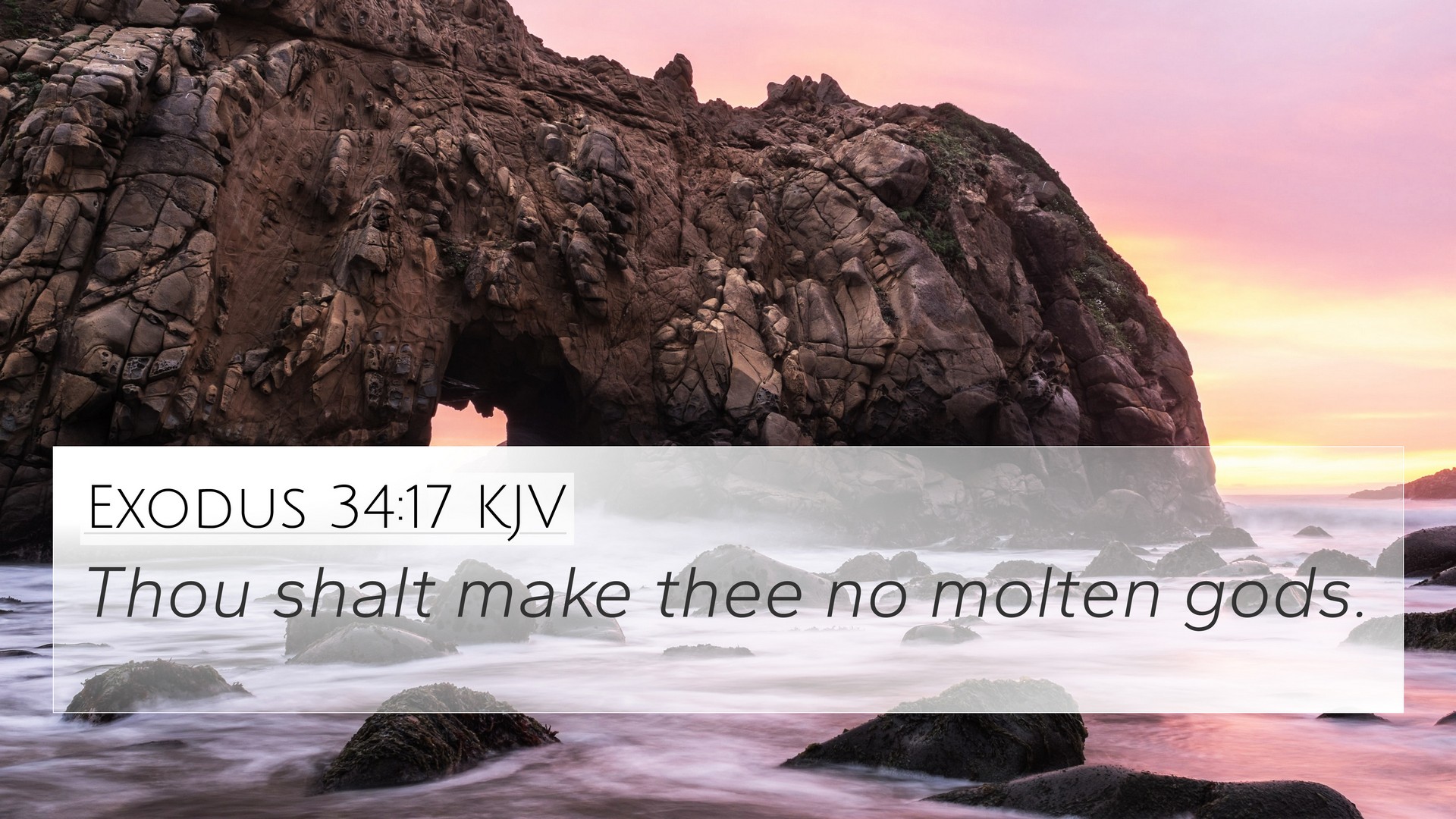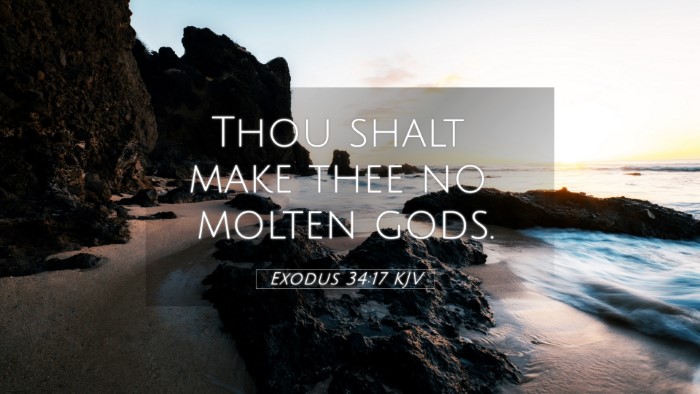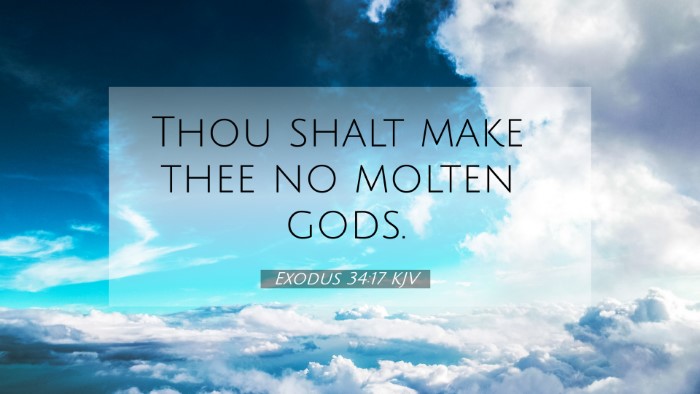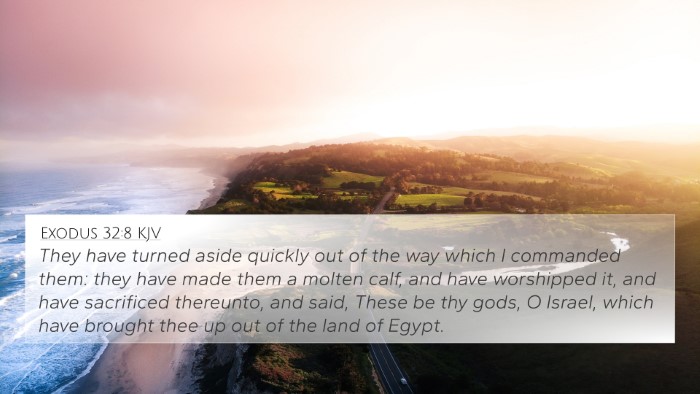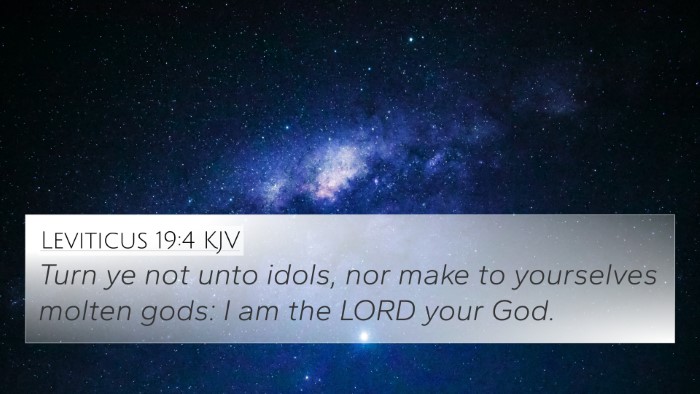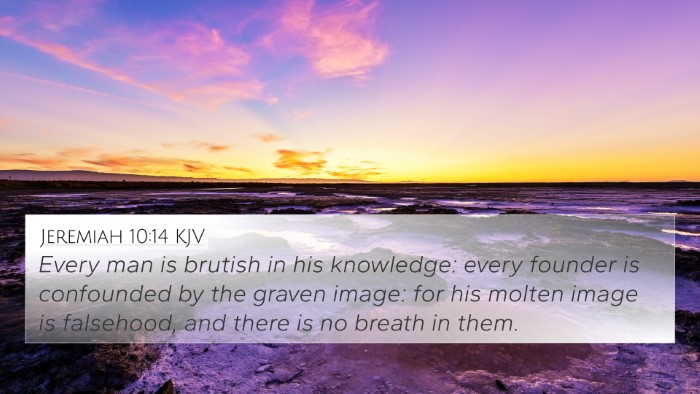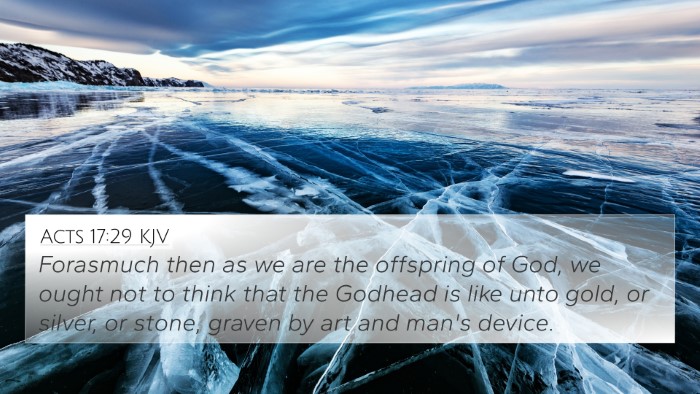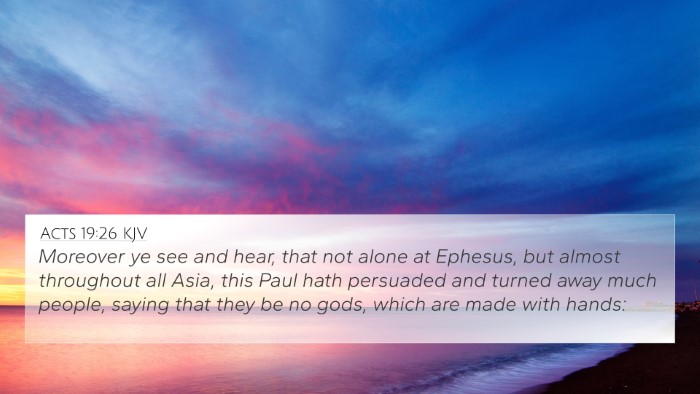Exodus 34:17 - Meaning and Interpretation
Verse: “Thou shalt make thee no molten gods.” - Exodus 34:17
This verse admonishes the people of Israel against the creation and worship of molten images or idols. It is a reiteration of God’s commandment to maintain monotheism and avoid the practices that were common among neighboring pagan cultures.
Summary of Insights
From various public domain commentaries, the following insights are gleaned:
- Matthew Henry:
Henry emphasizes the simplicity of God's demands, urging believers to rely solely on Him for their worship instead of succumbing to cultural influences that idolize created things. He underscores that making molten gods signifies a rebellion against God's sovereignty and a turning away from true worship.
- Albert Barnes:
Barnes notes that this command reflects God's continuous concern about Israel's vulnerability to idolatry. He expresses that the worship of idols not only contradicts God's covenant with His people but also leads to moral and spiritual decline, ultimately distancing them from divine blessing and guidance.
- Adam Clarke:
Clarke interprets this verse within the context of Israel's history, indicating that the prohibition against molten gods serves as a vital safeguard for their spiritual integrity. He invites readers to consider the historical precedents and cultural temptations that may lure believers away from the worship of the one true God.
Connections to Other Bible Verses
This verse relates closely to several other passages in the Bible, emphasizing themes of idolatry, divine worship, and fidelity to God. Here are some relevant cross-references:
- Exodus 20:4-5: "Thou shalt not make unto thee any graven image... Thou shalt not bow down thyself to them, nor serve them."
- Leviticus 19:4: "Turn ye not unto idols, nor make to yourselves molten gods: I am the Lord your God."
- Deuteronomy 5:8-9: "Thou shalt not make thee any graven image... for I the Lord thy God am a jealous God."
- Psalm 115:4-8: "Their idols are silver and gold, the work of men’s hands. They have mouths, but they speak not; eyes have they, but they see not."
- 1 John 5:21: "Little children, keep yourselves from idols. Amen."
- Isaiah 44:9-20: Descriptions of the folly of idol-making and the impotence of false gods.
- Romans 1:22-23: "Professing themselves to be wise, they became fools, and changed the glory of the uncorruptible God into an image."
Thematic Connections and Comparative Analysis
In terms of thematic connections, Exodus 34:17 serves as a cornerstone for understanding the nature of God's relationship with His people. It prompts a comparative Bible verse analysis, linking various themes of idolatry found throughout scripture:
- Monotheism vs. Polytheism: Exodus 34:17 stands in stark contrast to the polytheistic practices of surrounding nations.
- The Jealousy of God: The verse's context reflects God's passionate desire for exclusive worship.
- Spiritual Integrity: This command underlies the importance of maintaining purity in worship practices.
- Historical Warnings: Old Testament narratives frequently caution against the lure of idolatry (e.g., Israel's experiences in Canaan).
- Divine Judgment: Numerous scriptures illustrate the consequences of turning to idols, reinforcing God's commandments.
Tools for Bible Cross-Referencing
To delve deeper into the meanings of related scripture, readers can utilize several tools for Bible cross-referencing:
- Bible concordance
- Bible cross-reference guide
- Bible reference resources
- Comprehensive Bible cross-reference materials
User Intent and Search Strategies
If you are looking for connections between specific verses or themes, consider the following user intents that may lead to fruitful searches:
- Find cross-references for Exodus 34:17.
- Identifying connections between Old and New Testament.
- Comparative study of Pauline epistles that address idolatry.
Conclusion
Exodus 34:17 serves not just as a command but as a pivotal reminder of the nature of God and the expectations He places upon His people. By understanding this verse and its connections to other scriptures, we can gain profound insights into our faith, ensuring we remain steadfast in our commitment to worship the one true God.
